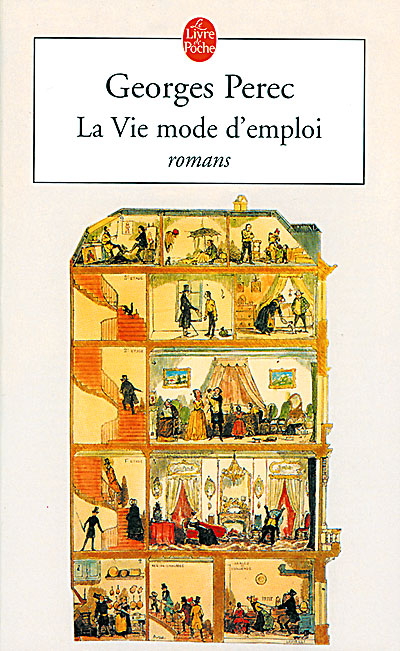I swore at some point that this would not be the sort of blog that documented actual things that happen to me, Mark, the person. The factors that determined this decision were probably something like, a) most people who read this blog probably know me anyway and will therefore probably find out sooner or later “what is up” with me via routes other than the internet, and b) a kind of impersonality in writing that I’ve just grown accustomed to. Clearly I’ve abandoned all of that, so what the hell.
I thought about this passage from Perec’s Life: A User’s Manual today as I was looking over my orals lists:
The pieces are unreadable, take on a sense, only when assembled; in isolation, a puzzle piece means nothing – just an impossible question, an opaque challenge. But as soon as you have succeeded, after minutes of trial and error, or after a prodigious hald-second flash of inspiration, in fitting it into one of its neighbours, the piece disappears, ceases to exist as a piece. The intense difficulty preceding this link-up – which the English word puzzle indicates so well – bot only loses its raison d’etre, it seems never to have had any reason, so obvious does the solution appear. The two pieces so miraculously conjoined are henceforth one, which in its turn will be a source of error, hesistancy, dismay, and expectation.
 Later in the novel we meet Bartlebooth, who spends his life learning to paint, so he can make a series of seascapes, have those seascapes made into exceedingly intricate jigsaw puzzles, and then spend the rest of his life putting the puzzles back together. And towards the end of the orals process, one feels like Bartlebooth for sure. You’ve built this thing without really knowing what it is, and as you try to reassemble the concept behind it from all of its contituent pieces, you realize the monumental parallax built into that process of REconstruction has alienated you entirely from the initial (turns out, somewhat arbitrary) method of assemblage that spurred the whole thing.
Later in the novel we meet Bartlebooth, who spends his life learning to paint, so he can make a series of seascapes, have those seascapes made into exceedingly intricate jigsaw puzzles, and then spend the rest of his life putting the puzzles back together. And towards the end of the orals process, one feels like Bartlebooth for sure. You’ve built this thing without really knowing what it is, and as you try to reassemble the concept behind it from all of its contituent pieces, you realize the monumental parallax built into that process of REconstruction has alienated you entirely from the initial (turns out, somewhat arbitrary) method of assemblage that spurred the whole thing.
Unfortunately, though the Bartlebooth analogy holds together, it doesn’t adequately capture the sense of pervasive disorder, of panic. Only Bartlebooth’s affluence, and the void of desire that affluence engenders, allows to him to give himself over to his project, to invest himself fully in a totally arbitrary, all-consuming structure of his own devising, but outside of his mode of being. He lives deliberately, slowly – even his asceticism betrays his privilege. All-consuming structure is the ur-commodity he designs and purchases for himself. That’s not how things feel from this end.



Recent Comments